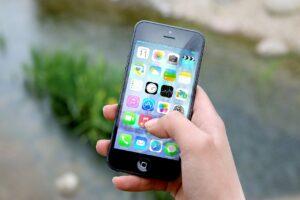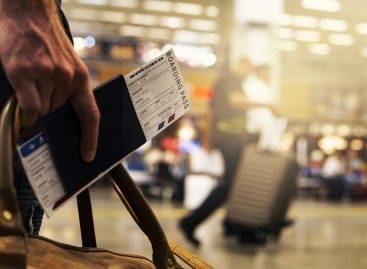Digital detox during Easter: addictive phone use is a much more serious and widespread problem than we think
The Easter fast is traditionally a time of introspection, renunciation, and self-reflection. In addition to giving up food, more and more people are looking for ways to cleanse their attention – that is, how to quiet themselves digitally. A digital detox is not a fad, but a conscious response to everyday life dominated by screens, especially if we want to fill the Easter holiday with real content, because addictive phone use is a much more serious and widespread problem today than humanity realizes.
Why is digital fasting important now?
 According to a survey in late 2024, the average American uses their mobile phone for 5 hours and 1 minute a day. That’s almost two and a half months a year, or 76 full days of screen time in a year. The data is staggering, especially when we consider that in 2011, screen time spent on mobile phones was only 46 minutes, and in 2016, it was 3 hours and 8 minutes. In a generational comparison, it is not surprising that Generation Z spends the most time on their mobile phones: an average of 378 minutes, or more than six hours. On average, users open their mobile phones 205 times a day, which means mobile use every seven minutes over the entire day – including the time spent sleeping.
According to a survey in late 2024, the average American uses their mobile phone for 5 hours and 1 minute a day. That’s almost two and a half months a year, or 76 full days of screen time in a year. The data is staggering, especially when we consider that in 2011, screen time spent on mobile phones was only 46 minutes, and in 2016, it was 3 hours and 8 minutes. In a generational comparison, it is not surprising that Generation Z spends the most time on their mobile phones: an average of 378 minutes, or more than six hours. On average, users open their mobile phones 205 times a day, which means mobile use every seven minutes over the entire day – including the time spent sleeping.
This excessive digital presence not only impairs our wakefulness, attention, concentration, work, and study, but also our sleep quality. According to another recent study on Norwegian research, using the phone before going to bed reduces sleep time, increases anxiety, and increases the risk of insomnia by 63 percent.
Digital detox is not only a spiritual practice, but also a way to protect your mental and physical health.
Digital fasting with good practices – what can we do?
Introduce an evening screen-free zone: Turn off all your screens at least 1 hour before bed: TV, mobile, laptop or tablet. Instead, read, meditate or talk to your family and friends – even in the context of a traditional phone call.
Designated offline time slots: Family meals, morning coffee or evening walk – make it a time when everyone puts down their phones.
Digital silence days: Try a day of the week (for example, Sunday) without apps – as recommended by the National Day of Unplugging initiative.
Related news
Chocolate rabbits might be smaller now, but they are yummy
🎧 Hallgasd a cikket: Lejátszás Szünet Folytatás Leállítás Nyelv: Auto…
Read more >From caged eggs to alternative production
🎧 Hallgasd a cikket: Lejátszás Szünet Folytatás Leállítás Nyelv: Auto…
Read more >Travel fever did not subside even after Easter
🎧 Hallgasd a cikket: Lejátszás Szünet Folytatás Leállítás Nyelv: Auto…
Read more >Related news
Retail sales of organic products in Hungary increased by 13.9% – our country is the second fastest growing market in the European Union
🎧 Hallgasd a cikket: Lejátszás Szünet Folytatás Leállítás Nyelv: Auto…
Read more >








